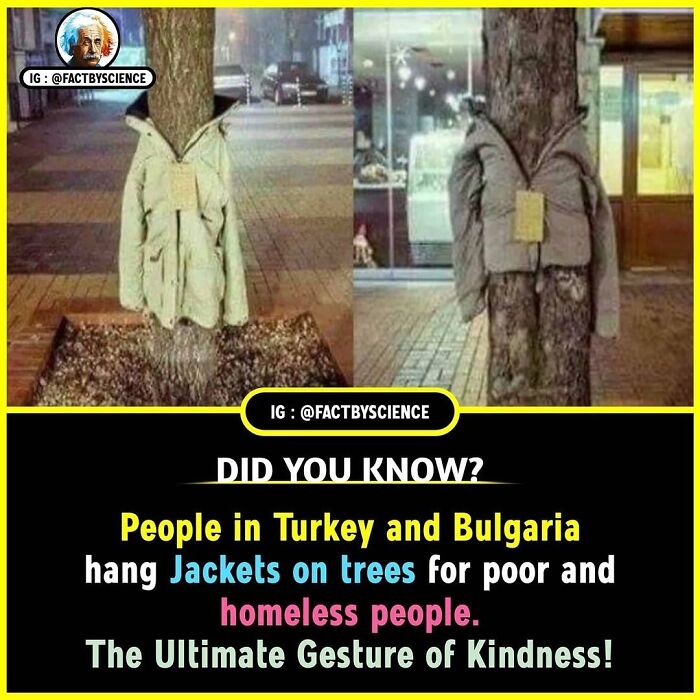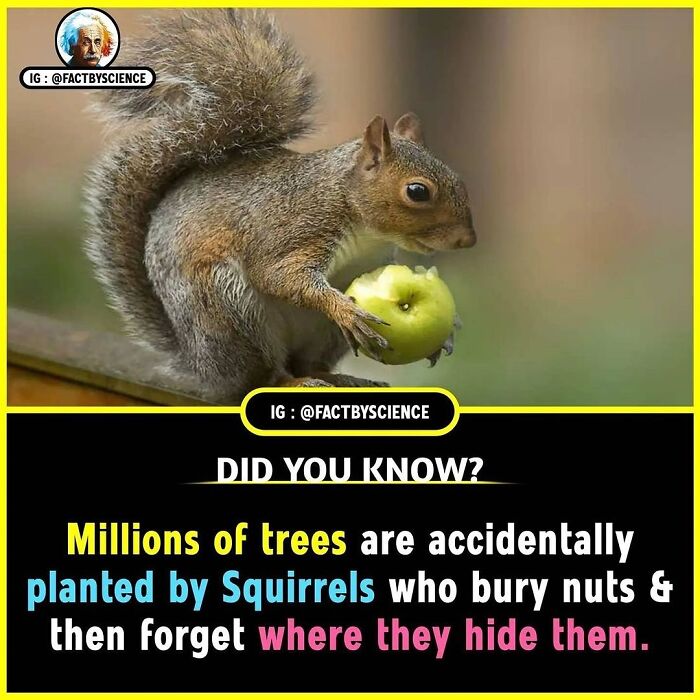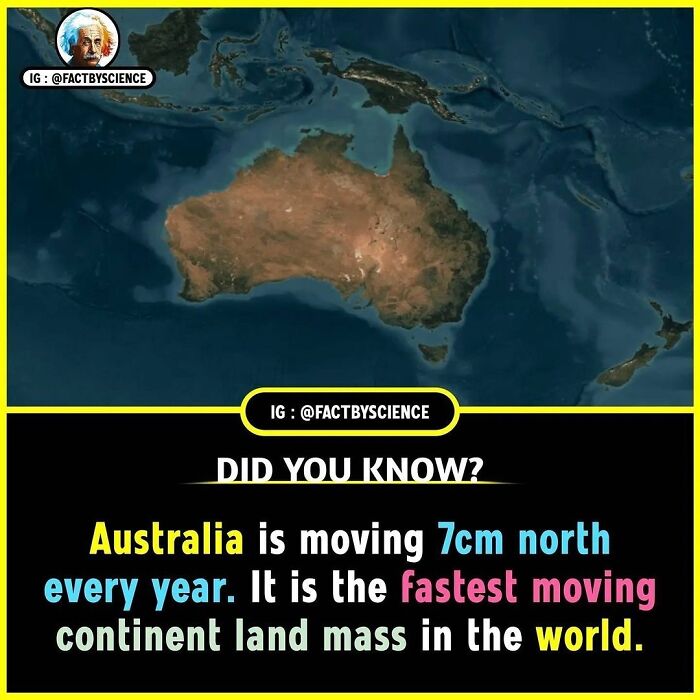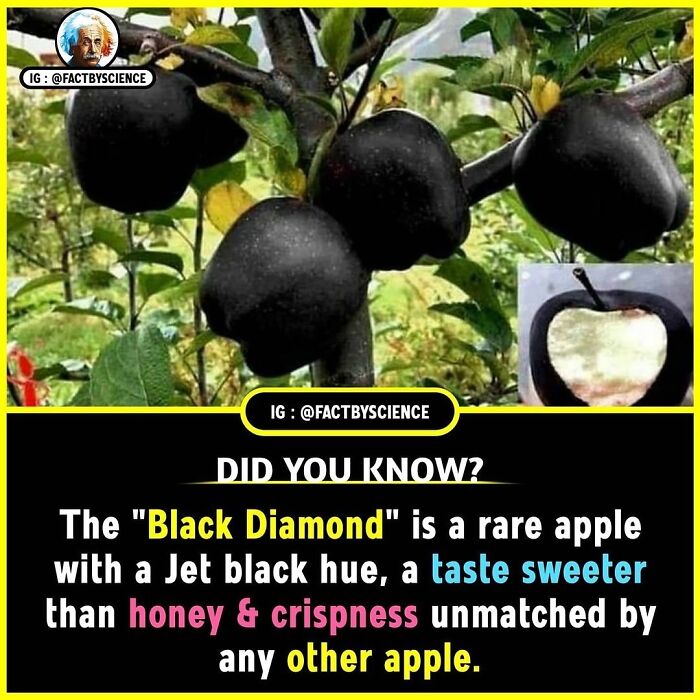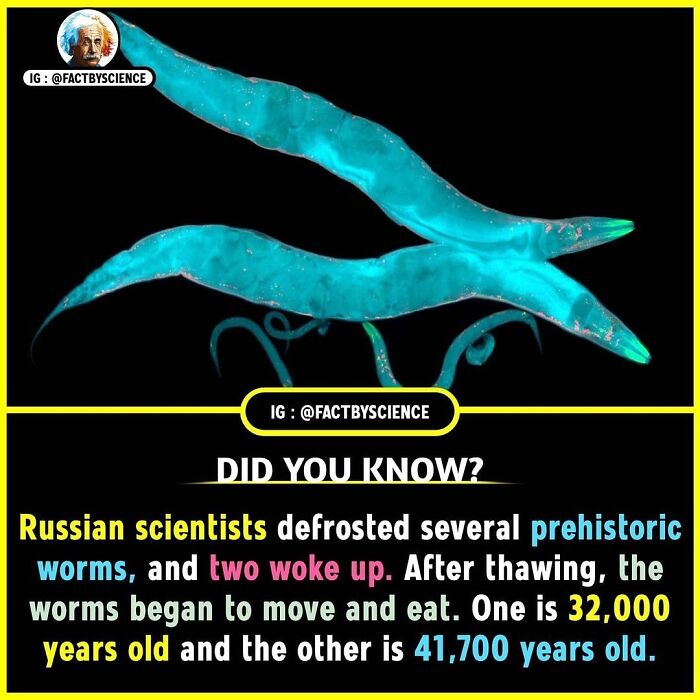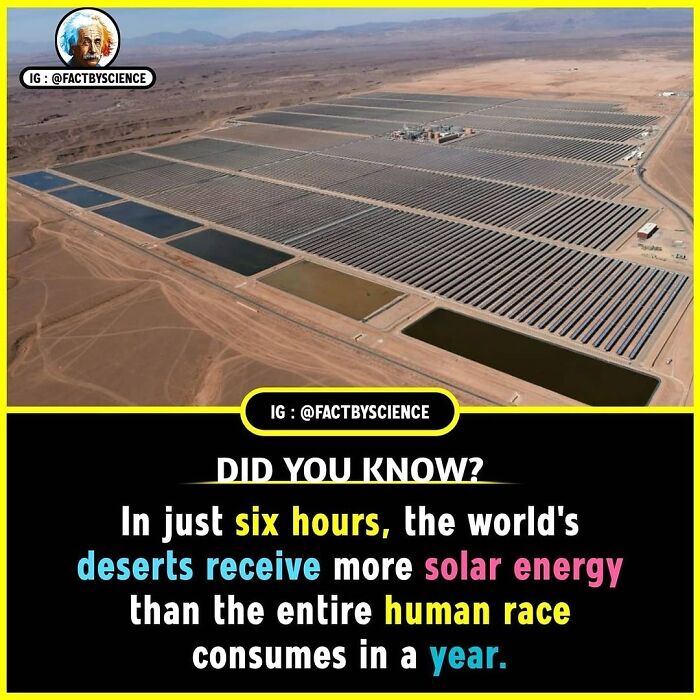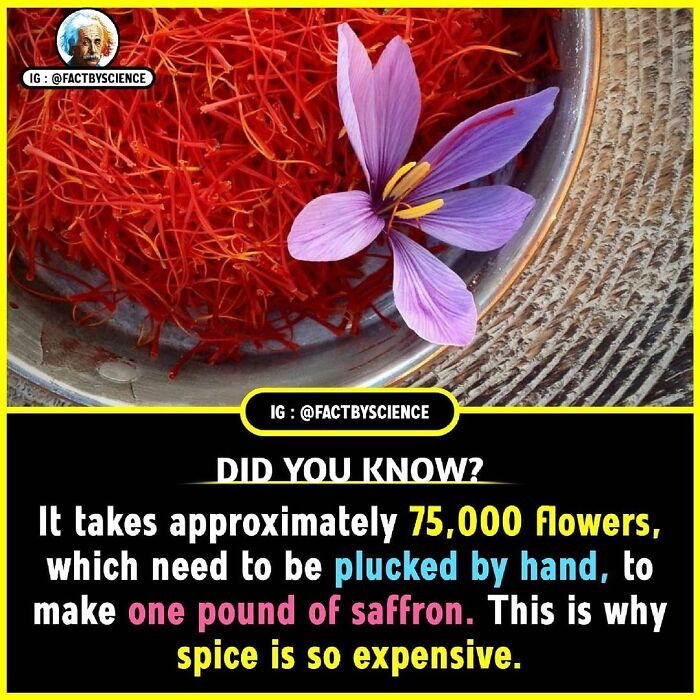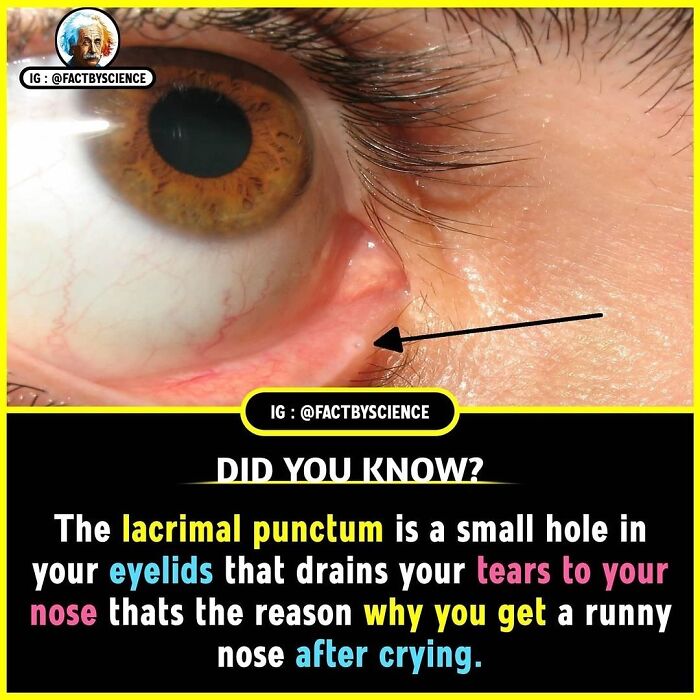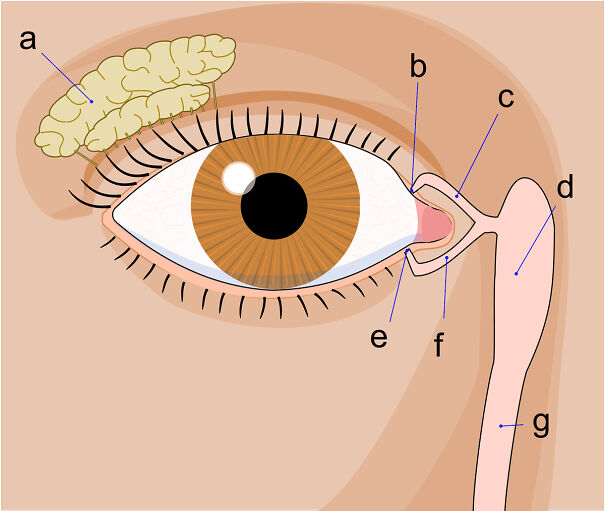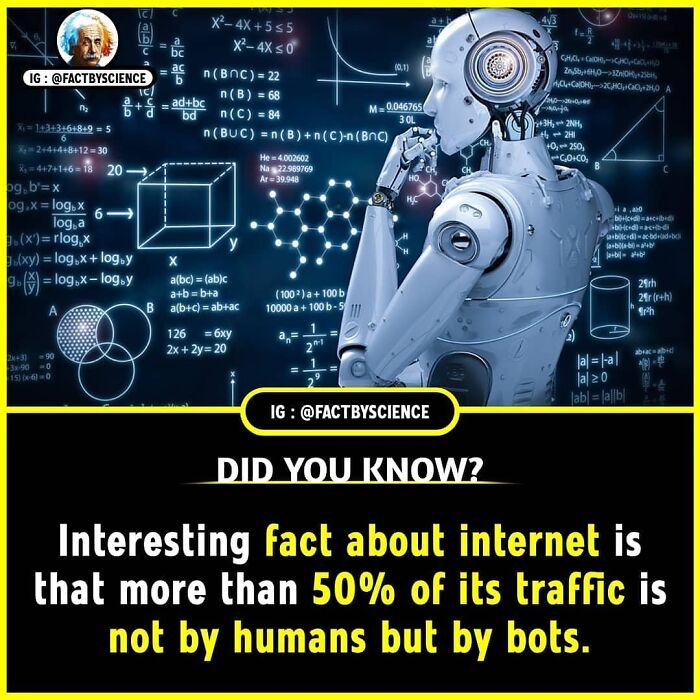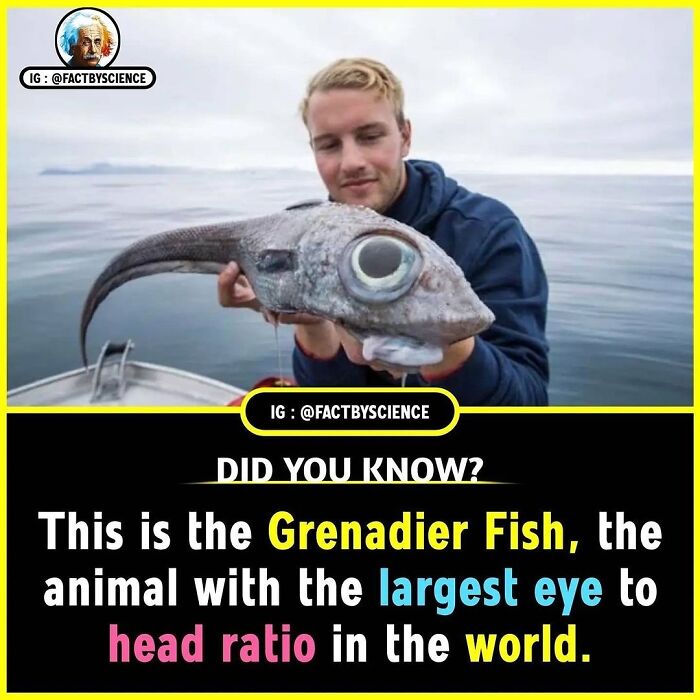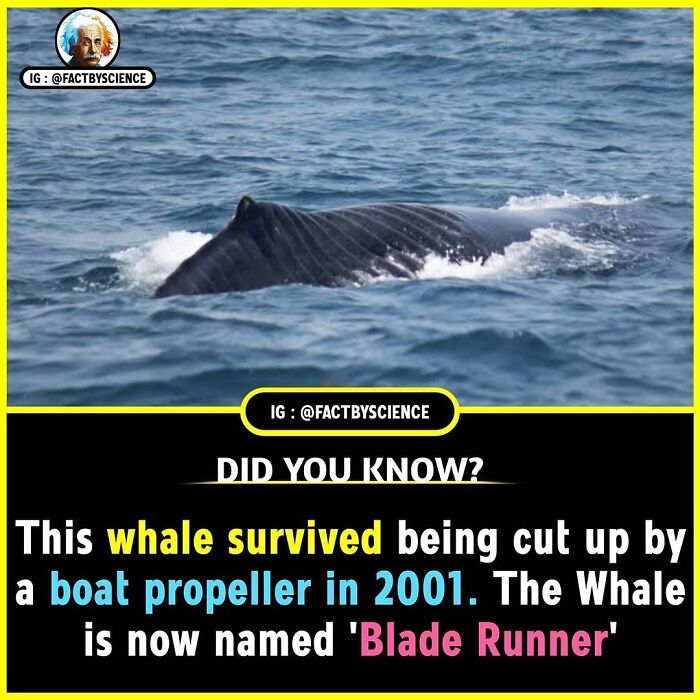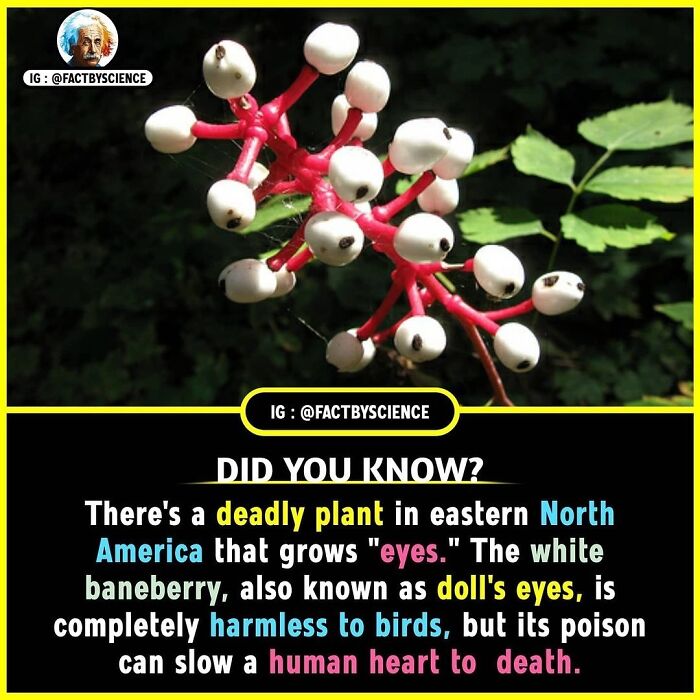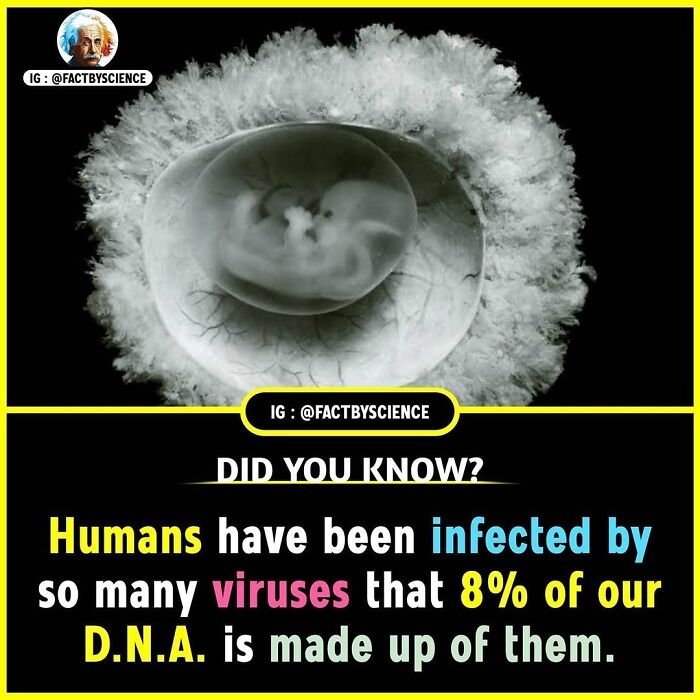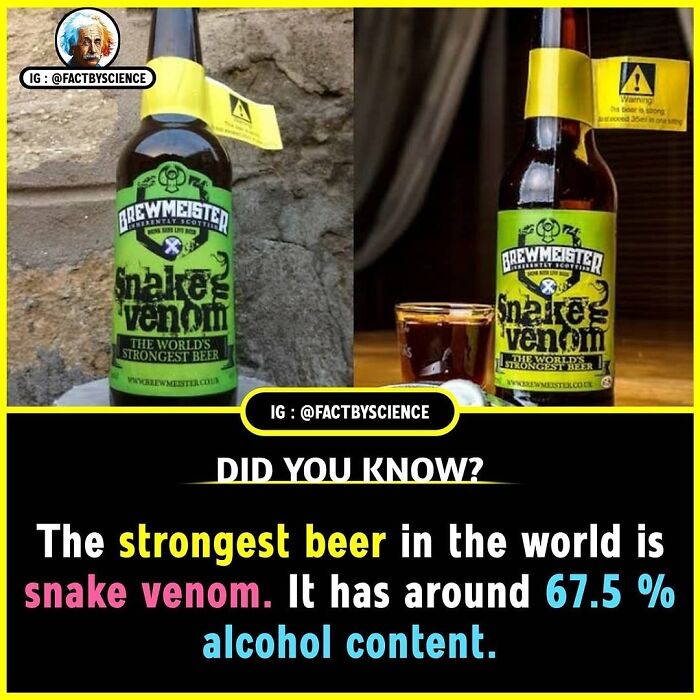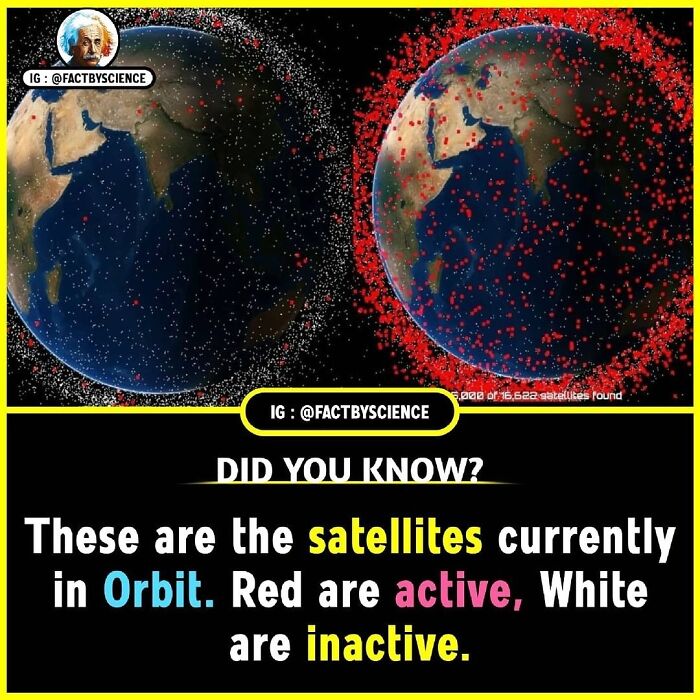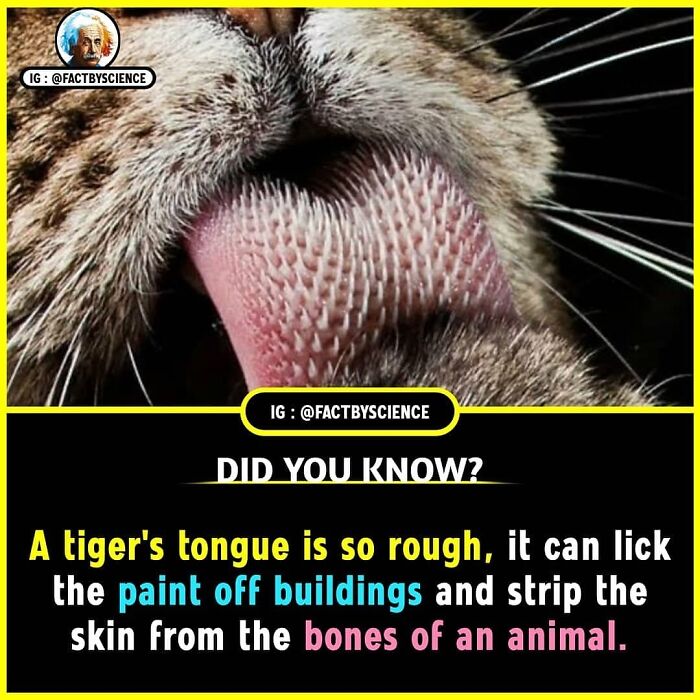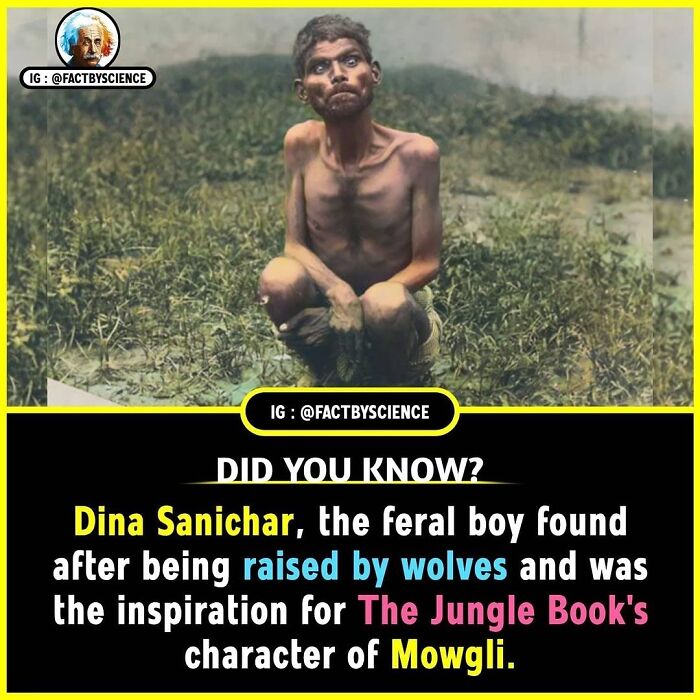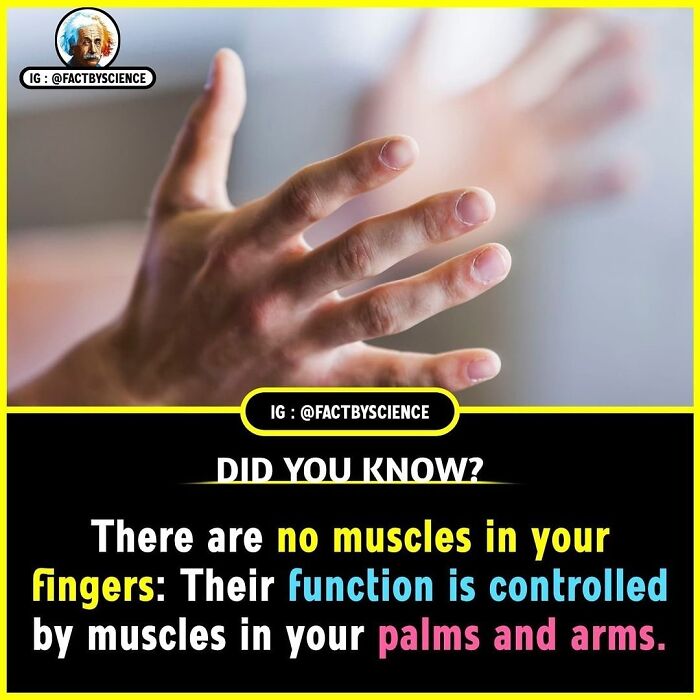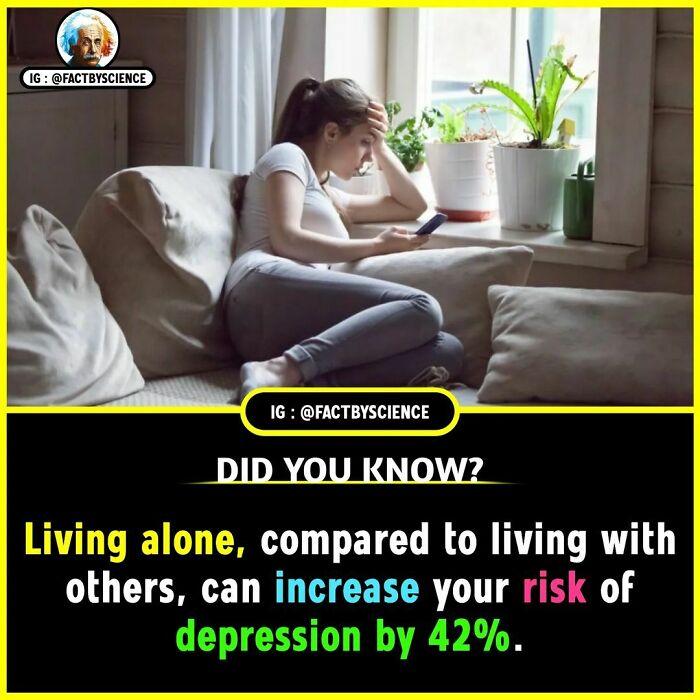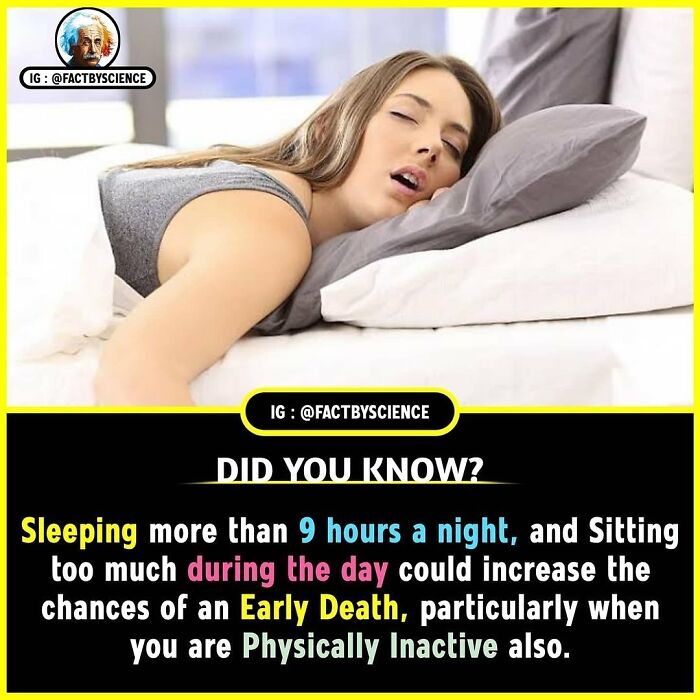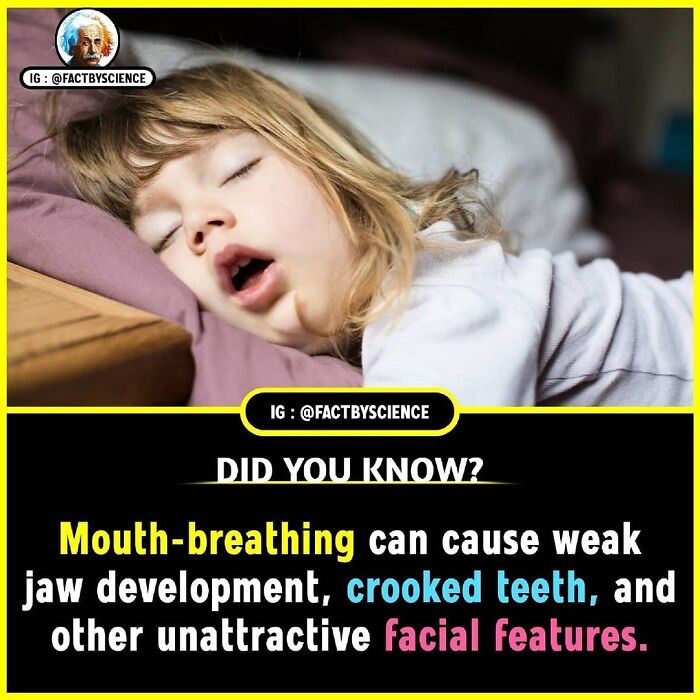
50 Cool And Interesting Facts About The World That May Be New To You
Interview With ExpertWe all get bored at some point. One survey found that the average American adult experiences 131 days of boredom per year. And most of it happens at work. Another study revealed that employees are bored on the job for more than 10 hours per week. But it’s not a bad thing. Scientists say being bored gives our brain a moment to pause, rest and reset. It also creates space to daydream. And that in turn can boost our creativity. Long bouts of boredom could even set us on a different life path, if we end up pondering whether we are adding value to the world or merely wasting our time doing what we do.
Of course, boredom can also lead you to places you might not have gone. And you'll find out things you might not have known before. If you ended up reading this as a result of being bored, your brain could be thanking you in a few minutes' time. We recently came across an Insta page called Facts By Science. It has over 566 thousand followers, and shares super interesting tidbits from around the world.
Keep scrolling for a list of our favorites, and upvote the ones that blew the boredom out of your mind. Don't miss the chat Bored Panda had with media psychologist Dr. Pamela Rutledge about the positives and negatives of using social media to combat boredom.
This post may include affiliate links.
Our taxes are a lot lower compared to other countries. But we have a good government, who invests in things that matter.
Occasional boredom isn't bad, but according to Psychology Today, frequent boredom can be associated with mental health issues such as anxiety and depression, lower achievement at school or work, and involvement in unhealthy relationships. It can even drive people to indulge in substance abuse, or reckless and antisocial behaviors.
The site defines boredom as a “state of mind characterized by a lack of interest, motivation, and engagement with the world around us,” adding that “when we're bored, we may feel restless, irritable, and unfulfilled. We may also experience physical symptoms like fatigue, lethargy, and a lack of energy.”
Dr. Pamela Rutledge is the director of the Media Psychology Research Center. She describes herself as "a media psychologist: a social scientist who applies expertise in human behavior to media and technology." She's done extensive research on how social media impacts our mental wellbeing, and kindly agreed to share some insights with Bored Panda.
When I was homeless after coming out to my parents (literally running) at 15, I had the forethought to stash a back pack outside. It had nothing I actually ended up needing in it, and I had zero idea how to find resources. They were in a fringe evangelical culty thing. Things like charity (from anywhere outside the small church they belonged to, or state assistance were not discussed, those things were of "the world" "not of GOD!" Ikr... anyway, I found some clothing in a dumpster, but it wasn't enough. I got lucky, when some gutter-punk (punk rock, but choosing to live by squatting abandoned buildings and dumpstering etc), they showed me better spots. But still it was always stuff that was outside, dirty as hell, and sometimes gave is weird rashes. One day I stumbled across what is the coolest thing I have ever seen for homeless folks. It was a very lightly heated closet type thing. You typed in a code, and the door sprung open. It had coats, hats, scarves, gloves and blankets.
Doing things that keep you actively engaged can be a good way to beat boredom. "Boredom is an emotion, a natural response to a lack of stimulation," said Rutledge during our interview. "It is a motivational tool that tells us when something is too easy, too difficult, or lacks personal meaning. Being bored stimulates us to change what we’re doing."
We asked Rutledge why so many people tend to pick up their phones when they're bored. "Because phones and devices require little effort, we often turn to them to soothe boredom," she replied. "Social media is a readily available source of interactive content, so it provides more mental stimulation than more passive activities. Even when you’re 'just watching', you are still actively scrolling and considering if there is other content you might want to see."
And if the content you choose involves learning something new, even better. That’s why we recommend scrolling through this list of random but really interesting facts from around the world. If you're looking for more fun, informative, and cool facts afterward, you can find them here. But first, continue reading to find out what else experts have to say about boredom.
Rutledge tells Bored Panda that there are times when scrolling through social media can be relaxing and restorative. "Content that makes you laugh or smile or inspires you with new ideas changes your body chemistry by triggering the reward center and makes you feel better, lifting your mood and releasing stress," she said.
But she adds that the key to any social media use, positive or negative, is purposeful goal-driven intention rather than using it to bury emotions. "It doesn’t matter whether the goal is fact-finding, connecting with others, learning to do something, or taking a moment of entertainment to exhale. Without some level of intention or self-awareness, we are at the mercy of our emotional reactivity," she said during our chat.
You need to be mindful of what you seek out online to beat boredom. "Be intentional of your media use. Note how your mood changes with what you watch. Scrolling through social media can actually make your boredom worse," warned Rutledge. She suggests seeking out longer-form content, where you can become immersed in a story.
This allows for deeper engagement, she says, adding that it "increases the sense of meaning, resulting in a more positive experience." On the other hand, Rutledge warns that short-form videos often lack a compelling story arc, which leads to more scrolling, switching between content, and, ultimately, you guessed it: more boredom.
The squirrels all think their nuts are in my flower pots. THEY'RE NOT!!! 😡🤬
Rutledge adds that digital media can be a convenient way to alter our environment, or beat boredom—but not if we’re on autopilot. "Turning to digital media isn’t the best way to manage our boredom if our kneejerk response to boredom takes us further away from our goals rather than engaging in more intentional activities with more personal value," said Rutledge.
"Goal satisfaction often means overcoming our automatic emotional reactions (like reaching for your phone and scrolling mindlessly). When we respond to boredom by taking stock and being intentional about what we’re feeling, we are more likely to find activities/behaviors that will have a positive impact."
It's actually purple, not 'jet black'. I'm sure the pic provided has been edited. I personally wouldn't say it was sweeter than honey, but definitely sweeter that golden delicious. It was nice, but not worth about (based on exchange rate at the the time) £6 per apple.
Dr. Alan Castel is a professor of cognitive psychology at the University of California. He says that boredom can lead to curiosity, and that curiosity is often piqued when we encounter something unusual, interesting, or unexpected—like when scrolling through our social media feeds. Castel adds that curiosity is great for the brain.
“Humans have a need to forage for information and a desire to learn,” he wrote. “This starts at an early age and can be fostered and maintained well into older age. Critically engaging in this process and satisfying our learning interests can keep our brains developing at any age.”
Castel adds that general knowledge quizzes or fact listicles can engage your brain and trigger dopamine responses. “There is a good reason why trivia night is so popular at pubs and senior centers and why people eagerly tune in to the popular game show Jeopardy!” he said. Or why articles like the one you're reading now are a hit with Pandas.
Rutledge says people shouldn't feel guilty when they're bored, adding that "boredom is a normal, but uncomfortable, emotion that signals a need for more stimulation." She says we should use moments of boredom mindfully. "When we’re bored, we are more vulnerable to random scrolling driven by 'FOMO'. This is the opposite of intentional engagement for a purpose—whether it’s entertainment, learning, or inspiration—and also makes you more susceptible to negative social comparison."
I'm not so sure that this is called empowerment. It sounds more like serious underrepresentation to me.
Erin Westgate is another expert on boredom. As an assistant professor of psychology at the University of Florida, she studies boredom, interest, and why some thoughts are more engaging than others. Westgate says the boredom is an emotion, just like anger or sadness, but one that people hate feeling. She once found that people despise being bored so much that they’d rather suffer an electric shock.
Something not many know is that the saffron flower can grow in a variety of places. A neighbor in NW US grows his own saffron. He says it's just like growing any other flower from bulb for Easter, then harvests and dries the stigma. With the amount of counterfeit saffron in the market, may just want to grow your own.
If I saw that picture without the explanation I would have assumed it was yet another AI fail
Westgate was conducting a study into boredom when she came across an interesting finding. Her team had gathered participants in a laboratory and asked them to daydream. “We tell them, ‘Sit down, try to think of a pleasure, but if you want, you can shock yourself with this little electric shock here.’ About 67% of the men and 25% of the women chose to shock themselves, rather than just sit and think," she revealed during a podcast. "When we asked them why, they looked at us like, 'Well, duh, it was really boring.'"
I've spent my entire life thinking that hole was where the tears came from
When I hold my nose and my mouth closed and try to exhale, building up pressure, then the air comes out of that hole, but only on the left side.
maybe blockage on the other, as I found out after searching YT for where tears came from. Do not recommend looking at that content 🙀
Load More Replies...As a kid I realized that tears were NOT coming from that hole so it must be a drain hole - and I was right. I noticed my nose would run when eyes were watery.
And want to know something else, your mouth and nose are also connected, (hope this doesn't happen but) next time you get a nosebleed see if you're able to taste the blood, it's actually pretty interesting
And I had plugs put in those holes to try and alleviate my dry eye syndrome.
My wife had the same thing done, but it didn't last long
Load More Replies...Residents obviously very optimistic that neither volcano will erupt in the near future
What percentage is from the aliens learning all about us before invading?
sounds like somthing my mom would have done..... she once claimed as we were in the car with her, that she "just say that tree run across the road"..... then another time, saw tons of cows moving and said, "look at all the moving trees"......
Now we just give kids candy. I think the other way may have had better results for the classroom?
Where is this plant found in North America? Asking for a friend.
Many years ago I was talking to a guy who worked for the state health department involving testing milk plants. He said one of the people would always much higher bacteria counts in the samples he took than expected, so a supervisor went with him to observe his sampling process. He very carefully opened the small plastic bags, and then blew into them to open them up instead of using the tabs that were there for exactly that purpose.
So religions spend millions building statues to their gods instead of helping the poor. Typical.
It ain't so. https://en.wikipedia.org/wiki/Rose-breasted_grosbeak#Breeding
It's not necessarily sweet, the baby is just ensuring that it's host keeps hostin'
This is unlikely. Sanichar was discovered in 1867, but Rudyard Kipling based Mowgli on six cases of wild children raised by wolves that Kipling read about in a book called 'Journey Through the Kingdom of Oude in 1848-1850', which was published in 1858 so could not have included Sanichar.
I question this cost since I know peasant farmers in China who have 5 of these dogs. They rent them out as guard dogs on construction sites
As an engineer for one of the backbone providers in the US I can say this is false in that bot traffic is not 50% of of all internet traffic. The largest user of traffic is ad content at between 20% - 35%. Personally my LAN blocks about 24% of my total throuput due to ad traffic. Write you gov't officials people we need regulation on ad delivery. Ads should not be affecting a service we pay for.
To be honest, the format reminds me more of the indian guy that posts "facts" from time to time
Load More Replies...I've had to retire recently due to a disability, and I am bored out of my mind. I'm reading a lot of books, but I miss going to work and seeing my coworkers. I hope to find a part time job that's compatible with my disability soon.
As an engineer for one of the backbone providers in the US I can say this is false in that bot traffic is not 50% of of all internet traffic. The largest user of traffic is ad content at between 20% - 35%. Personally my LAN blocks about 24% of my total throuput due to ad traffic. Write you gov't officials people we need regulation on ad delivery. Ads should not be affecting a service we pay for.
To be honest, the format reminds me more of the indian guy that posts "facts" from time to time
Load More Replies...I've had to retire recently due to a disability, and I am bored out of my mind. I'm reading a lot of books, but I miss going to work and seeing my coworkers. I hope to find a part time job that's compatible with my disability soon.

 Dark Mode
Dark Mode 

 No fees, cancel anytime
No fees, cancel anytime 








